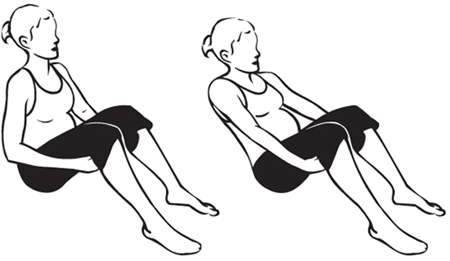Using Retin-A
Retin-A (tretinoin), not to be confused
with Accutane (isotretinoin), is a cream or lotion used to treat acne
and to help get rid of fine wrinkles on the face. If you are pregnant
and using Retin-A, stop using it immediately!
We don’t have enough data to know if it’s
safe to use during pregnancy. We do know any type of medication you
use—whether taken internally, inhaled, injected or spread on the
skin—gets into your bloodstream. Many substances in your bloodstream
can be passed to your baby.
Some medicines a mother-to-be
uses become concentrated in baby. Your body can handle it, but your
baby’s body may not be able to. If some substances build up in the
baby, they can have important effects on its development. In the
future, we may know more about the effects of Retin-A on a growing
baby. At this time, it’s best to avoid using it for the sake of your
baby.
Seizures and Epilepsy
A history of seizures—before pregnancy,
during a previous pregnancy or during this pregnancy—is important
information you must share with your healthcare provider. (Another term
for seizure is convulsion.) It’s estimated that about 500,000 women in the United States with a seizure disorder are of childbearing age.
Seizures can and usually do occur without
warning. A seizure indicates an abnormal condition related to the
nervous system, particularly the brain. During a seizure, a person
often loses body control. This can be serious for mom and baby.
Be sure you get enough sleep. Sleep deprivation can cause more seizures.
If you have never had a problem with seizures, know that a short episode of dizziness or lightheadedness is not
usually a seizure. Seizures are usually diagnosed by someone observing
the seizure and noting the symptoms previously mentioned. An
electroencephalogram (EEG) may be needed to diagnose a seizure.
Epilepsy.
If you have epilepsy, it’s important to control your disease during
pregnancy because seizures can affect you and baby in many ways.
One-third of women with epilepsy will see a decrease in the number of
seizures they have during pregnancy. One-third will have more seizures,
and one-third will see no change at all.
During pregnancy, hormonal fluctuations
can affect epilepsy. You may be at higher risk of some pregnancy
problems. Grand-mal seizures can put the baby at risk because they
reduce blood flow to the fetus.
Seizures seldom occur during labor and delivery. More than 90% of all epileptic pregnant women give birth to healthy babies.
Medications to Control Seizures.
If you take medication for seizure control or prevention, tell your
healthcare provider before trying to get pregnant or at the beginning
of pregnancy. Medication can be taken during pregnancy to control
seizures, but some are safer than others. Ask about taking large doses
of folic acid; it has proved helpful in some women.
If you have morning sickness, tell your
healthcare provider about it. Nausea and vomiting can interfere with
your body’s ability to absorb your medications.
There are concerns regarding use of anticonvulsant medications in pregnancy. There is also concern regarding polytherapy—when a woman takes several medications in combination. Ask your healthcare provider to put you on the lowest dosage of one antiepileptic drug. Take your antiseizure medication exactly as it is prescribed.
Most studies show increased risk to the
baby when a mom-to-be takes valproate, especially in the first
trimester. There’s evidence exposure of a baby to this medication
increases the risk of autism. Talk to your healthcare provider about
this medication before you become pregnant or as
soon as you know you’re pregnant. Because half of all pregnancies in
the United States are unplanned, most experts recommend using another
medication as a first-line drug for women of childbearing age.
Dilantin can cause birth defects in a
baby. Other medications may be used during pregnancy for seizure
prevention. One of the more common is phenobarbital, but there’s some
concern about the safety of this medicine. Lamotrigine therapy alone
shows no increased risk of problems in baby.
During pregnancy, kidneys may remove
greater amounts of antiepileptic drugs from your system more quickly
than usual. Drug levels could decrease by as much as 50%. It’s
important to see your neurologist every month for blood tests to check
the levels in your blood. Any dosage adjustments can be made after test
results are in.
Seizures during pregnancy can be
serious; you may need increased monitoring during pregnancy. If you
have questions or concerns about a history of possible seizures, talk
to your healthcare provider about them.
5. Exercise for Week 26
Sit on the floor with your knees bent
and your feet flat on the ground. Keep your knees about 12 inches
apart. Reach underneath each thigh with your hands, then stretch back
slowly until your arms are straight. Keep your feet on the floor as you
return to the starting position. Repeat 8 times. Strengthens abdominal muscles, inner thighs and pelvic floor.
